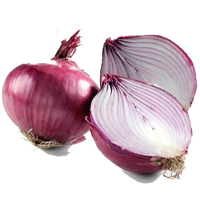UPDATE 6/19/12: The “Dirty Dozen” has now been updated to include 14 total items. The list now includes cucumbers, blueberries, green beans and kale/collard greens; and it no longer includes pears and cherries. The “Clean 12” has also been upgraded to the “Clean 15” and now includes eggplant, cantaloupe, sweet potatoes, grapefruit, watermelon, and mushrooms.
There is more talk all the time about how organic is the way to go when selecting food, especially produce. Due to the amount of pesticides and fertilizers used on large domestic and imported crops, not to mention the effects this has on the environment- choosing local, organic produce is becoming more popular.
For all the good organics offered, the price is still steep for some consumers. This story from Yahoo Health suggests that there are some produce items you should buy organic due to the high amount of chemical treatment and level of dirtiness; while others you can buy the regular items and save a little money.
The dirtiest 12 produce items include (should buy organic):
 1. Peaches (highest pesticide
1. Peaches (highest pesticide
2. Apples
3. Sweet Bell Peppers
4. Celery
5. Nectarines
6. Strawberries
7. Cherries
8. Lettuce
9. Grapes
10. Pears
11. Spinach
12. Potatoes
The cleanest 12 produce items include:
 1. Onion (lowest pesticide)
1. Onion (lowest pesticide)
2. Avocados
3. Frozen Sweet Corn
4. Pineapple
5. Mango
6. Frozen Sweet Peas
7. Asparagus
8. Kiwi
9. Bananas
10. Cabbage
Whether you’re shopping from the cleanest list or the dirtiest- be sure you’re always washing the fruits and vegetables thoroughly. Use warm water, a cleaning cloth for soft skins and a scrubber for tougher skins.
 Tips for going organic more affordably:
Tips for going organic more affordably:
1. Grow your own garden using organic soils, seeds and do not use fertilizers or pesticides.
2. Shop local farmer’s markets for organic produce, meats, jellies and breads.
3. Shop local co-ops for bulk items like organic rice
4. Join a food buyers club. These local organizations let you pay in as a group and buy direct from wholesalers.
5. Watch for sales at your supermarket and health food stores. Stock up and freeze or can bulk items for later.

My rule is if I peel or pare or chop off the exterior and only eat the interior, I’ll save money and buy conventional (citrus–unless I zest, pineapple, bananas, pomegranates, papayas, avocado, etc). If it eat it all, skin and all (tomatoes, grapes, celery, potatoes, zucchini, plums, peaches, etc), I go for organic.
I go for organic meats (except beef, cause I loathe the flavor and texture of grass-fed organic beef and I only eat it about once a week), which are REALLY pricey! I also splurge on organic milk and other dairy with rare exceptions. (I love FAGE yogurt and I dislike every organic swiss cheese I’ve tried.)
As long as my budget can stand it, I’ll support local farms, pasture-raised and organic chicken and eggs, organic and humane pork, etc. But, hey, with the economy tanking, I may ahve to go all-conventional in the future–like it or not. I’d go vegetarian (ovo-lacto) if hubby weren’t such a limited vision guy about produce and a beans-hater. Ah, well.
The P
I spend a lot on groceries because the majority I buy is organic.
Glad to see you’re doing so much, Princess!
Don’t forget- most fruits and veggies have most of their vitamins and minerals in the skin- so scraping them off eliminates a lot of the nutrients you could be consuming.
It’s recommended that you keep the skin and do a thorough washing.
Thanks for posting this. I am an advocate for organic produce and believe we need to reduce the amount of pesticides we consume from our food supply. I just wrote a post about it on my own blog today.